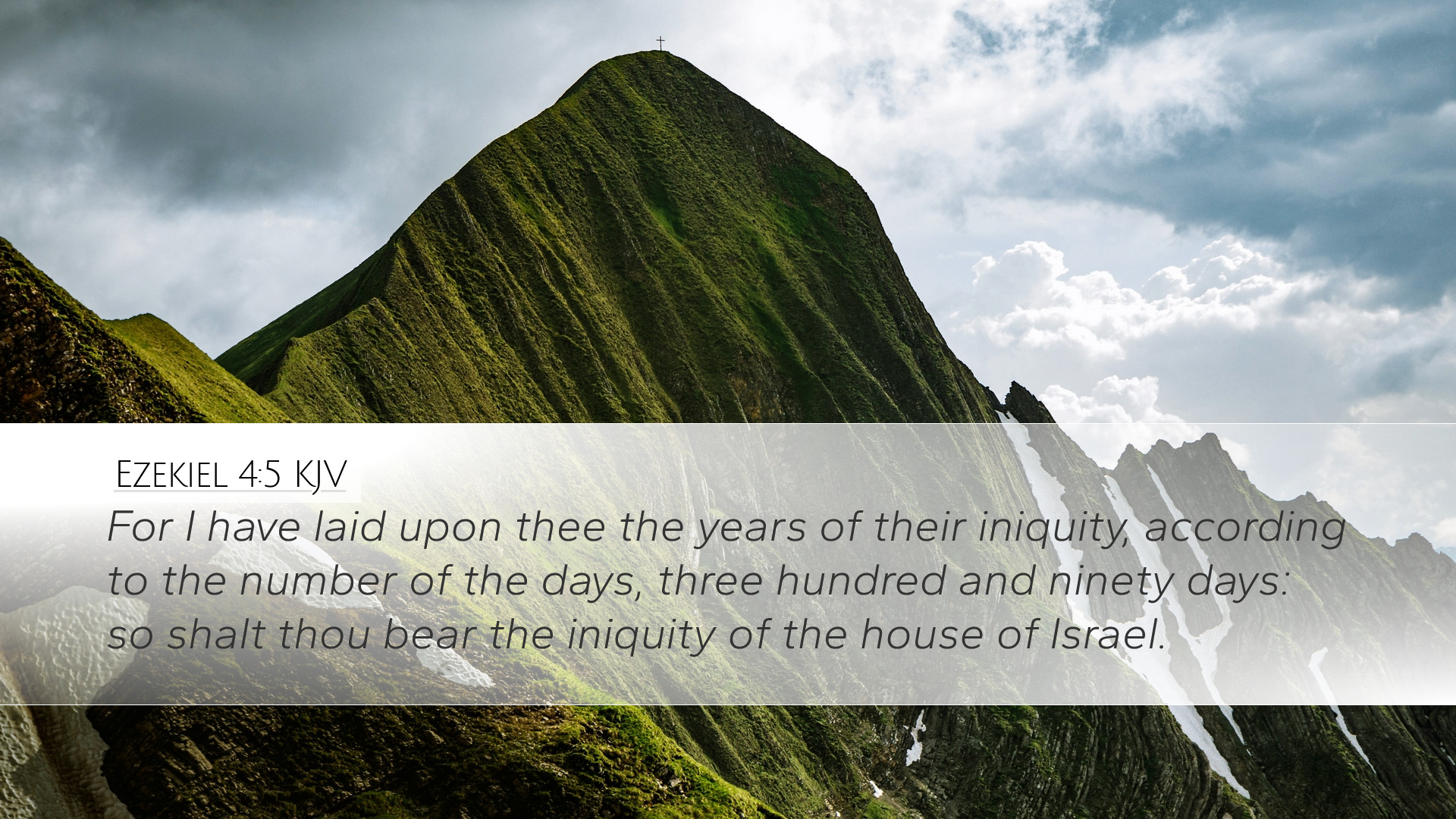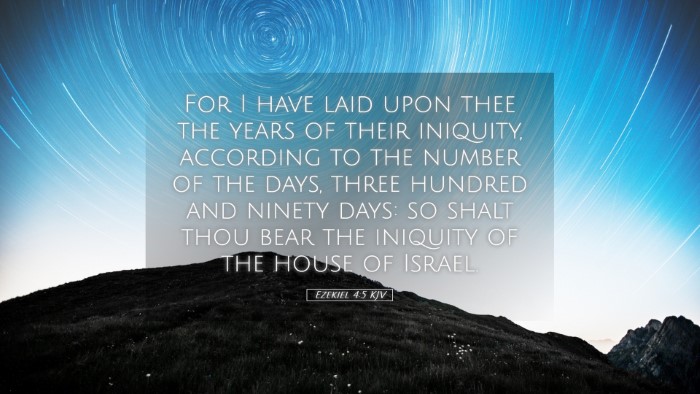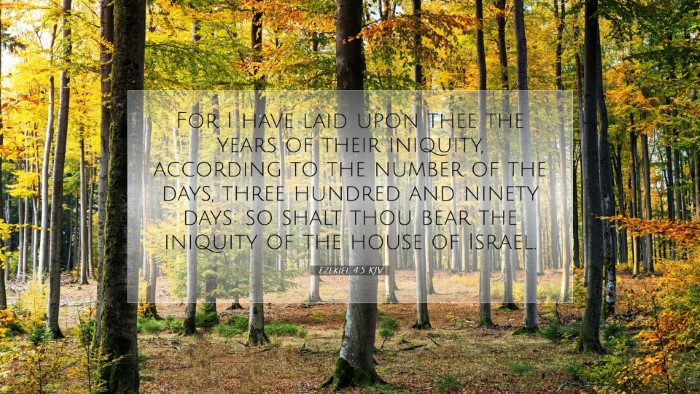Ezekiel 4:5 Commentary
Ezekiel 4:5 (KJV): "For I have laid upon thee the years of their iniquity, according to the number of the days, three hundred and ninety days: so shalt thou bear the iniquity of the house of Israel."
Context and Background
This verse occurs within a series of symbolic actions and prophecies given to Ezekiel as a representation of Judah's impending judgment due to their sins. The prophetic acts serve both as a warning and a means of conveying deeper truths about the nation's spiritual condition.
The action depicted in this passage correlates with the historical context of Israel's idolatry and rebellion against God. Ezekiel is acting as a sign to the people, and through his symbolic acts, he embodies the burden of their transgressions.
The Symbolism of the 390 Days
The specified duration of 390 days represents a comprehensive accounting for the years of iniquity amassed by the house of Israel. According to Matthew Henry, each day accounts for a year of sin (Numbers 14:34; Ezekiel 4:6). This emphasizes the severity and protracted nature of the nation's disobedience to God's commands.
Albert Barnes elaborates that these 390 years are understood as a symbol for the time leading up to the fall of Jerusalem, representing a considerable period of divine patience being worn thin in the face of persistent idolatry and immorality.
Furthermore, Adam Clarke notes that the choice of days rather than years explicitly conveys that the people are not just to bear a metaphorical burden; they are to face the consequences of their actions within a designated period, highlighting both accountability and the divine justice of God.
Theological Implications
This verse sheds light on the character of God as a God of justice and righteousness. The prolonged period of judgment underscores the reality of God's patience toward sin. The divine willingness to warn through prophetic means showcases His desire for repentance and restoration rather than immediate destruction.
Moreover, the illustration of bearing iniquity suggests that sins are not inconsequential; they carry weight that must be addressed. Matthew Henry emphasizes that such prophetic enactments serve to illustrate the seriousness of sin and the tangible effects of divine judgment on a community.
In preaching application, this verse calls for humility and an awareness of societal sins. Spiritual leaders need to guide their congregations in recognizing and confessing the collective iniquities that burden communities, thus creating space for divine intervention.
The Role of the Prophet
Ezekiel’s actions represent not just a call to repentance but also the heavy burden of prophetic ministry. As noted by Albert Barnes, the prophet bears the iniquity himself during the prophetic act, thus illustrating the relationship between the prophet and the people. This draws attention to the concept of intercession, whereby the prophet acts as a mediator between the Lord and His people.
In the ancient world, such acts by prophets were seen as catalysts for God’s messages. Adam Clarke suggests that Ezekiel's role is integral in conveying God's message clearly, warning Israel of the consequences of their actions. The intensity of his actions is a reflection of the severity of the circumstances faced by the nation.
Practical Applications for Today
The summons to bear iniquity resonates with Christian leaders today who are called to bear the burdens of their communities. The reminder that sin has a period of reckoning is crucial for contemporary pastoral care. In a time of moral ambiguity, the church can learn from this call to accountability and repentance.
- Call to Repentance: Encourage congregations to reflect on personal and collective sins, fostering a culture of repentance.
- Awareness of Consequences: Remind followers that actions possess consequences, urging them to lead lives that honor God.
- Encouragement in Burden-Bearing: Pastors should approach congregational sins with compassion while promoting an understanding of the weight of sin.
- Intercessory Prayer: Lead efforts in prayer for the community, emphasizing the prophet's role as an intercessor.
Conclusion
Ezekiel 4:5 serves as a powerful reminder of the gravity of sin and the importance of repentance. The prophetic actions illustrate God's righteous judgment against Israel’s idolatry, emphasizing the poignant truth that sin carries weight and consequence. For pastors, theologians, and scholars, understanding this verse compels a deeper engagement with the weight of congregational sin and the pressing call to draw communities back towards faithfulness to God.
Ultimately, the scripture invites a holistic view that recognizes God’s justice while emphasizing His mercy and the hope found in repentance. The narrative encourages leaders to confront sin within their communities while holding onto the promise of redemption through sincere return to God.


